
Arizona Charter Academy

Arizona Charter Academy
Success Schools | Surprise, Arizona
Arizona’s Move On When Reading policy requires public and charter schools to use evidence-based core reading programs and interventions in K-3, because high-quality instructional materials grounded in the science of reading play a critical role in supporting students' learning.
"I read all the research and statistics," said Heather Henderson, chief academic officer at Arizona Charter Academy (ACA), a K-8, Title I school in Surprise. "It says that 95% of kids can read if you follow these methods" based in the science of reading. "Our kids are no different. I was like, 'We’re going to make this happen. We’re going for it. This isn’t negotiable.'"
The early literacy story at ACA is a case study in the systematic, collaborative, and tenacious approach required to effectively implement an evidence-based curriculum and intervention program from kindergarten through the early grades to help students build the skills they need to be proficient readers.
Read On Arizona sat down with ACA staff to learn what they believe have been the keys to improving literacy in K-2 to fuel success in grades 3 through 5 in the long run.
"In the last few years, the big difference is that the staff and I are beginning to really understand the science of reading," Henderson said.
High Expectations
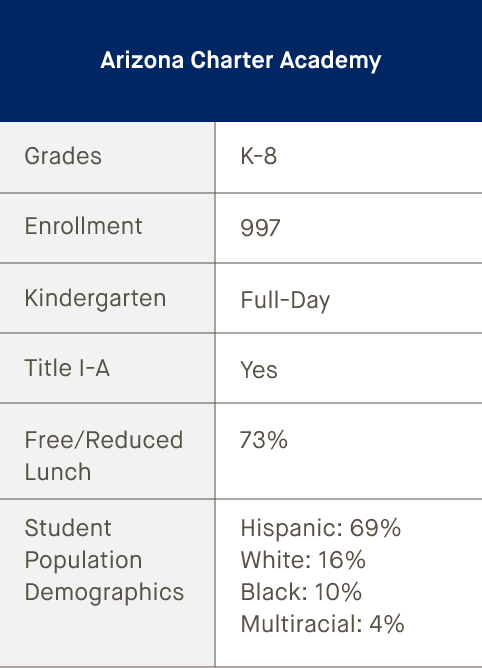
"We’re a turnaround school,” said Henderson, who has worked at Arizona Charter Academy since 2003 and formerly served as principal. “We were D-rated years ago. It has taken years to develop a culture of high expectations."
Driven by the belief that a student’s ZIP code should not predetermine their future, staff at Arizona Charter Academy are committed to doing everything they can to see their students develop the literacy skills they need to be successful in school.
"It’s really great to see everyone working together to try to close the achievement gap," said Jordan Beckman, the school's principal.
ACA has always emphasized rigorous, standards-based curriculum. Several years ago, the school adopted Amplify Core Knowledge Language Arts (CKLA) with an initial focus on K-2.
"It takes a long time to really use a curriculum well," said Henderson. "It took us a while to really understand CKLA."
"It takes a long time to really use a curriculum well."
The curriculum eventually became valid, reliable, and "authentically implemented" at the school, but it hadn’t translated into higher scores on Arizona’s annual third grade English Language Arts assessment.
"What was still missing was the ‘why’ behind what we were doing," Henderson said.
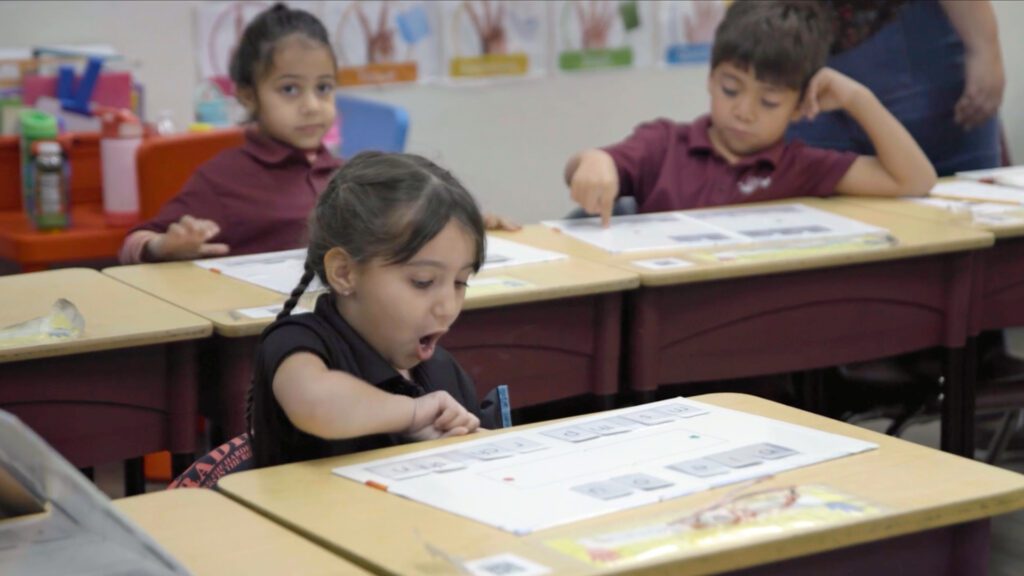
The Science of Reading
Henderson immersed herself in the science of reading, and ACA staff did not hesitate to buy in.
"We’ve built a culture of trust and collaboration," Henderson said. "They're amazing at saying, 'Okay. If 95% can learn to read, then that’s what we’re going for.' They believe in it."
School leadership and teachers worked together to learn how to better utilize assessment data — especially subscores focused on the specific skills that add up to mastery of important standards — to monitor individual student’s progress and tailor instruction and interventions in lower grades.
"If 95% can learn to read, then that's what we're going for."
Federal pandemic relief funds provided the opportunity for bolder changes to the school’s literacy program.
"Our kids were already behind and struggling before Covid," Henderson said. "It just magnified our issues as a Title I school."
ACA used its ESSER funds to hire several part-time reading interventionists — an evidence-based strategy recommended in the funding guidelines — which dramatically increased its capacity to reach more students with targeted reading instruction and support.
"You can hire one (interventionist) with your Move On When Reading funds," Henderson said, "but let’s be real, one teacher can only cover so many kids."
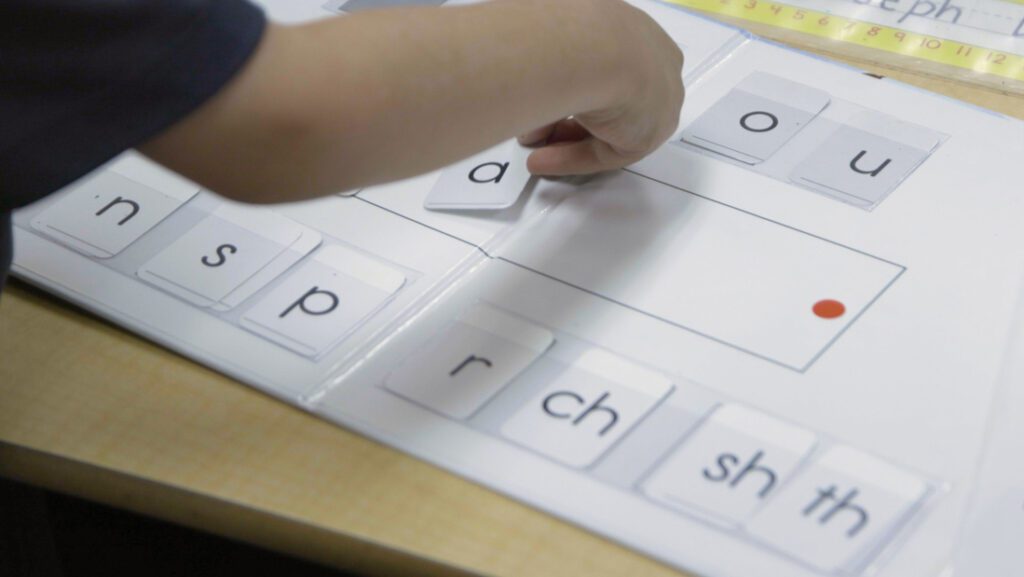
Building an Intervention Program
With staffing in place, ACA was ready to begin intervention groups "for real," as Henderson put it. Following research-based best practices, every "red and yellow" student (those "at risk" and "approaching” literacy benchmarks) is pulled out during a dedicated enrichment block.
The school developed staggered schedules for the early grades in order to maximize the number of students who are served by the interventionists.
"We vary the schedules between the different grade levels so more kids can get intervention and are not missing the core content," said Nicole Harris, special education director who also leads the school’s K-2 PLC. "If you’re all on the same time schedule, you can only pull out so many kids at once."
Instead of being built around lunch or electives, "We've built an intervention program that is, I think, unique to our school." Beckman said, "It doesn’t pull students out of core content or electives. It is built into the schedule as an additional piece of support for students. It really is a double dose of what they need."
"Scheduling is another critical piece," Henderson said. "It's understanding how to make time work for you."
"It really is a double dose of what they need."
Regular progress monitoring helps target interventions for each student.
"We are collecting data every week," said Michelle Miller, an intervention team lead.
ACA's intervention program continues to improve with each year of experience and implementation.
"This year has been the start of something great," Miller said. "We've become better at connecting with classroom teachers to make sure that the strategies we’re using, as interventionists, are the same strategies being taught in the classroom. Making sure that we're following the curriculum and not creating our own."
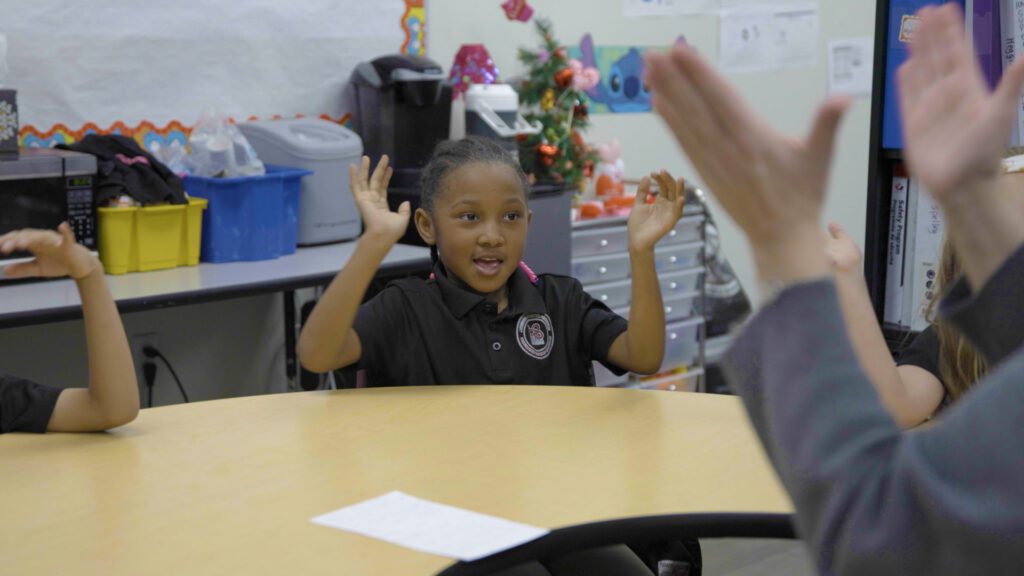
PD and Coaching for Every Teacher
Support for teachers at Arizona Charter Academy includes 90 to 120 minutes of professional learning communities every Monday.
"We’ve spent a lot of time in our PLC groups focused on internalizing our content, instructional strategies, and identifying what it means to be on grade level for each standard," said Beckman.
Every teacher, regardless of their experience level, also has an on-site instructional coach. Teachers are observed weekly and then have a 30 minute, one-on-one feedback cycle with their coach. Survey results show that staff feel very supported by this process.
Recruiting and retaining teachers is a major point of emphasis at ACA.
"A lot of our teachers have been here a really long time, and we have a good model," said Melissa Montenegro, who leads the school’s human resources function. When recruiting new teachers, "we're looking for someone with a growth mindset, someone who likes collaboration and the idea that there's observation in the classroom and coaching every single week."
All new teachers also participate in additional professional development provided after school on Mondays.
Collaboration among school leaders and teachers across grades levels "has been huge," said Stephanie Allen, kindergarten teacher and grade-level lead. "There’s a lot of support and a lot of buy-in. Teachers are putting the effort in because they've bought into the program and what we’re doing."
"I know what I'm doing and the why behind it. I don't feel so lost."
ACA's commitment to a systematic literacy program also makes teachers feel supported and confident in their work.
"I know what I'm doing and the why behind it," Miller said. "I don’t feel so lost. And every year, we're able to go deeper" in implementing the science of reading.
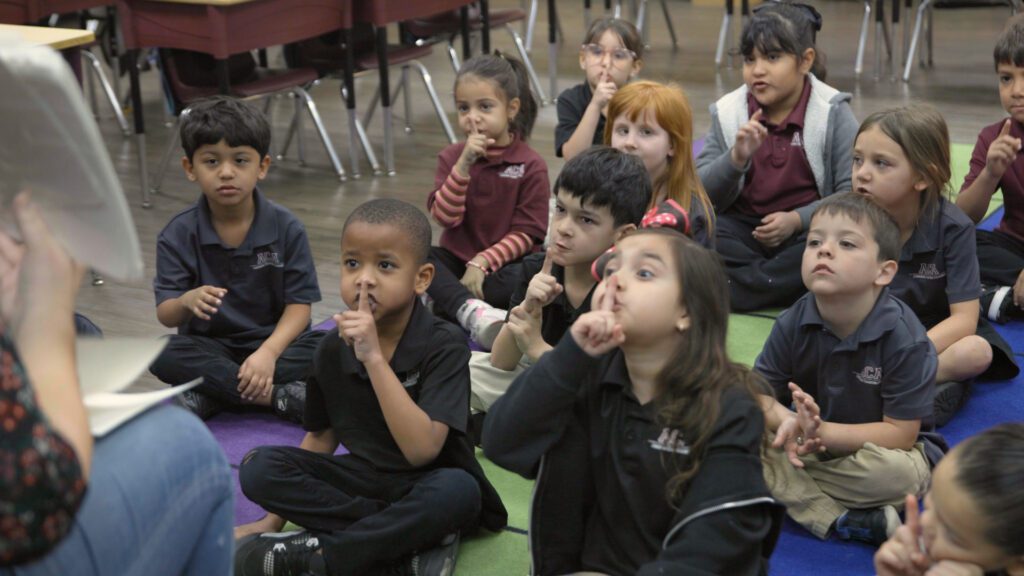
Seeing Results in Benchmark Data
Historically, most of the school's entering kindergarten students were in the bottom, "at risk" category on the fall benchmark assessment, and getting those students to benchmark by the spring assessment was a persistent challenge.
But ACA's systematic approach to literacy instruction and intervention has resulted in dramatic improvement in the school’s benchmark data for kindergarten and across K-2.
"That data is coming out super strong for us," Henderson said. "It’s really coming to fruition."
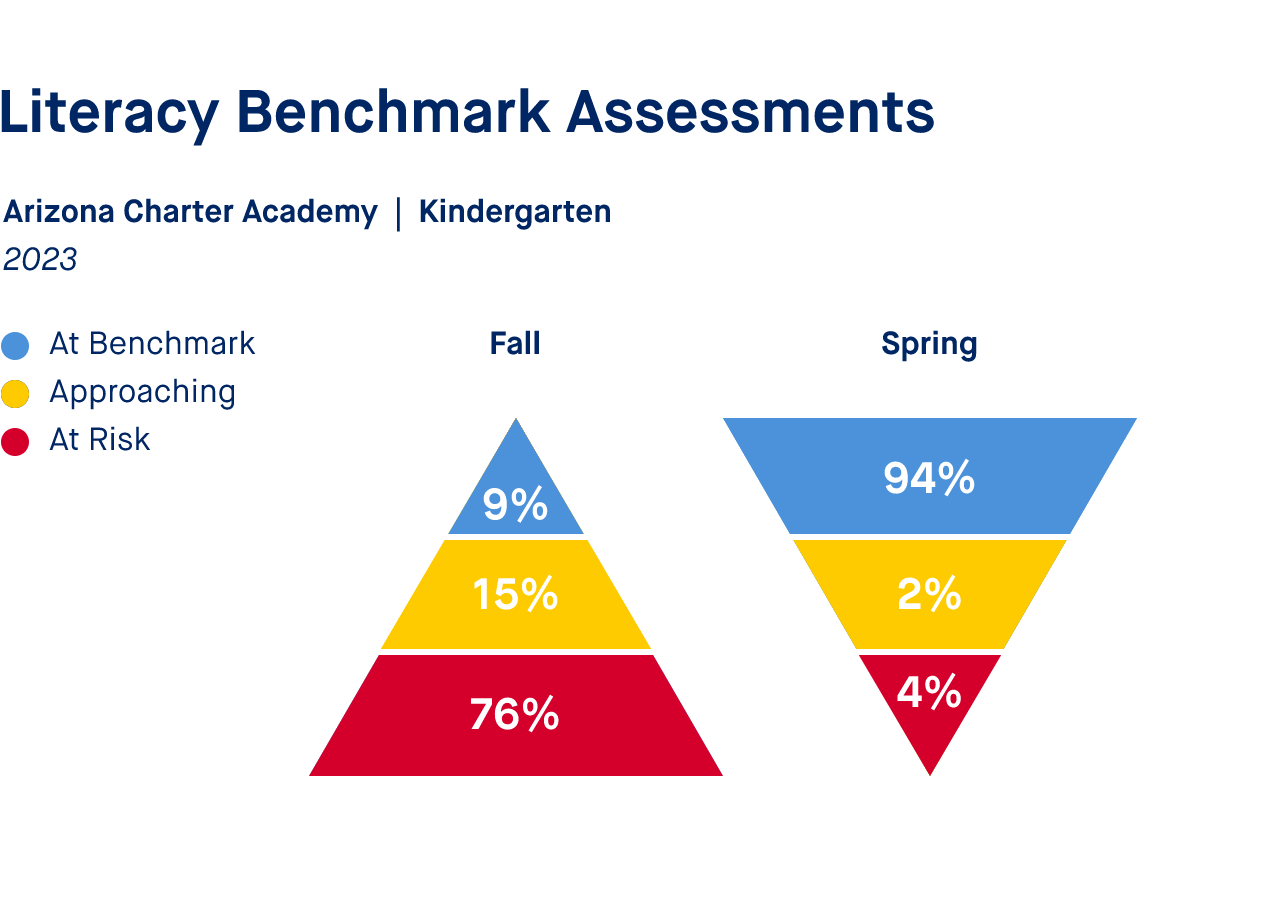
"I've been at this for almost 30 years in Title I schools," Henderson said, "and I never thought that pyramid would flip."
With the expiration of Covid relief funding, the school has made cuts in other areas to maintain its successful K-2 literacy model and extend it to more grades.
"Since we’ve seen such success in K-2, it made sense to replicate that intervention program in grades 3, 4, and 5," Beckman said. "And when I told our third- through fifth-grade teachers last year that we were changing our curriculum, none of them batted an eye," because the entire staff is committed to "what’s best for kids."
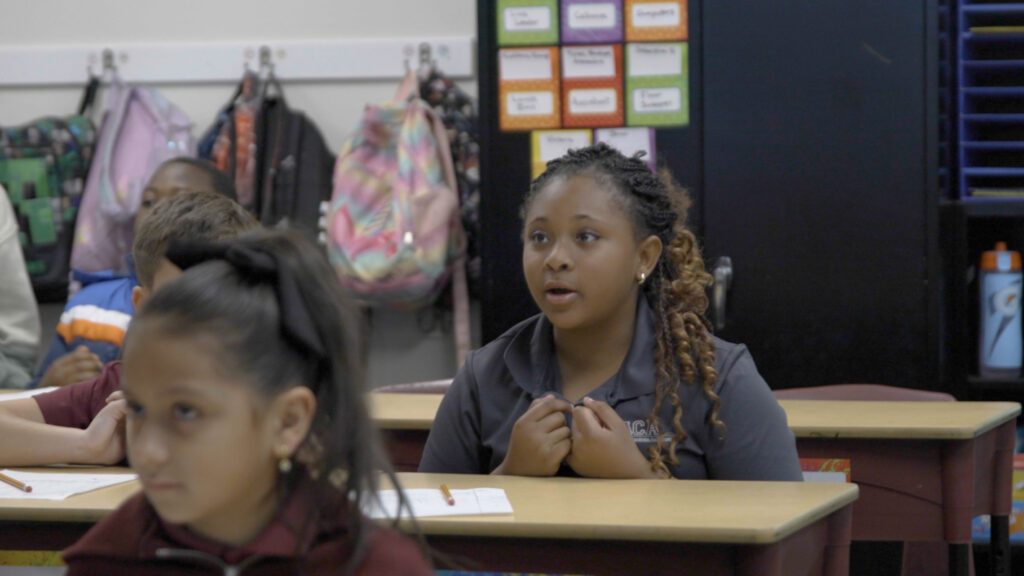
Ups and Downs
Progress takes time and doesn't come in a straight line. After surpassing the state average in 2023, the school's most recent third grade English Language Arts assessment scores dropped.
"Third grade is still up and down," Henderson said. "We're still not there, and it’s going to take a few years, but we’re making a ton of progress. I see it coming, because our teachers are really starting to understand the science of reading."
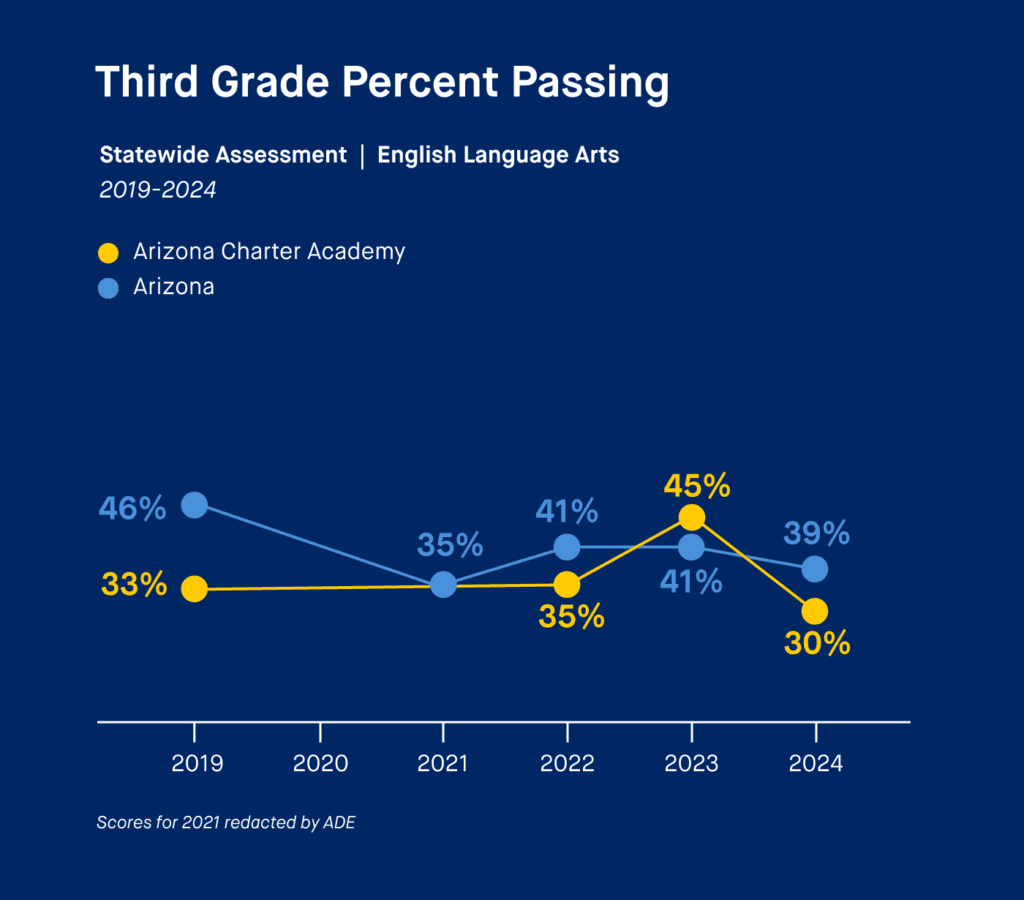
Understanding how to build on each of the foundational skills needed to be a good reader is crucial.
"It's something that we’re still working through, piece by piece," Beckman said.
ACA has recently focused more specifically on vocabulary and oral language.
"That’s the critical missing piece of comprehension," Henderson said.
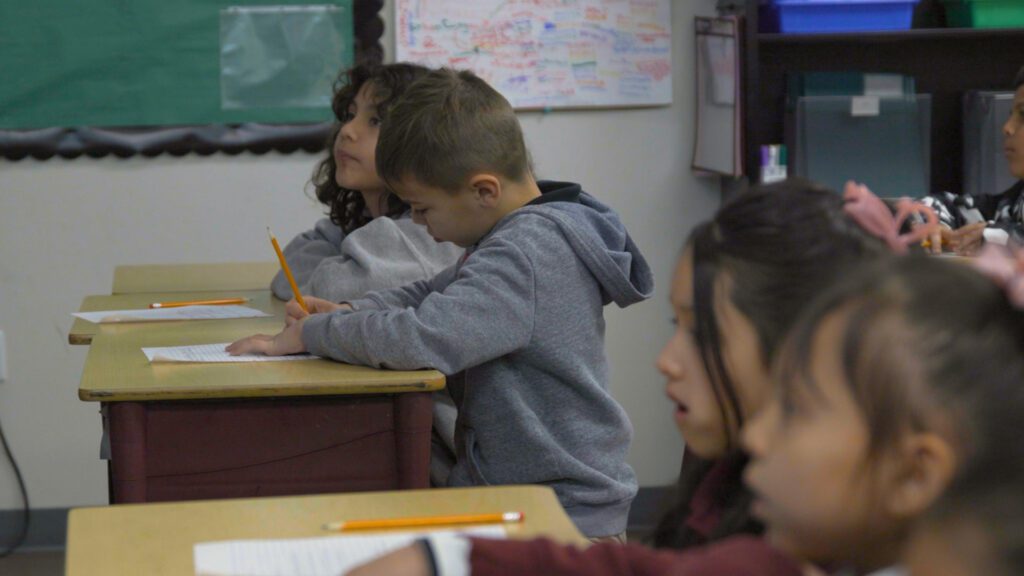
Staying Focused
Arizona Charter Academy remains determined and committed to its evidence-based approach to literacy instruction, and Henderson encourages all schools in Arizona to follow the path laid out by the science of reading.
"It's not going to happen overnight, but you can do it," Henderson said. "The research is there. There’s nothing new. You just have to make the conscious decision to follow the research and get rid of the excuses."
"If we just stayed focused on the fact that 95% of kids can learn to read," (the educational problems of) the state of Arizona would be solved."
Read On Arizona thanks the following educators at Arizona Charter Academy for participating in our interview:
- Stephanie Allen, Teacher, Kindergarten
- Jordan Beckman, Principal
- Nicole Harris, SPED and Academic Programs Director
- Heather Henderson, Chief Academic Officer
- Michelle Miller, Special Education/Intervention Team Lead
- Melissa Montenegro, Director of Talent and PR